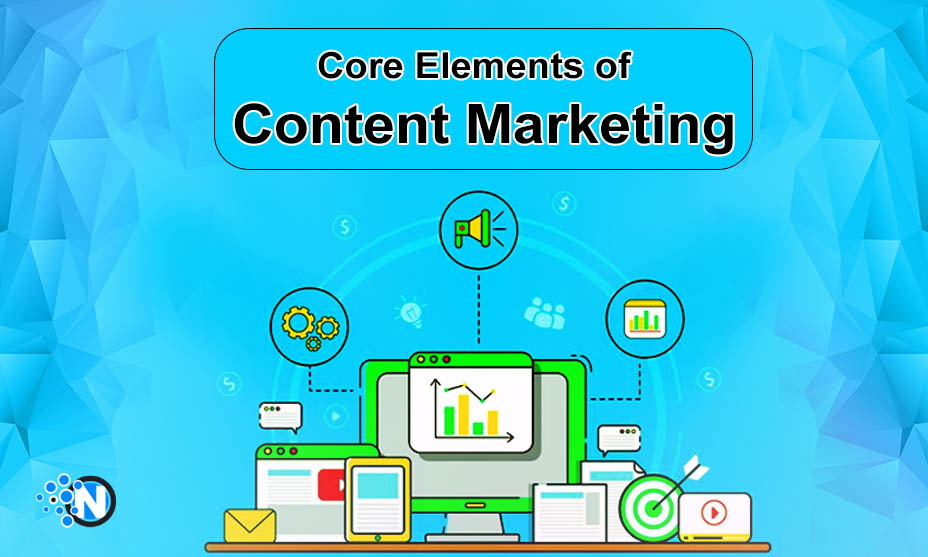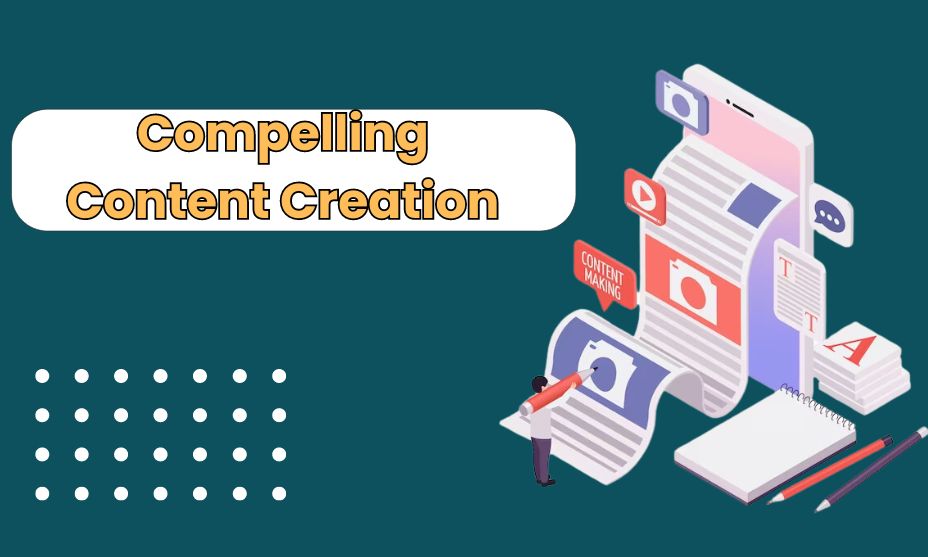The Core Elements of Content Marketing

Content marketing is the primary element for businesses to succeed in this online competitive world. As the digital landscape is evolving, the importance of quality is increasing not only to provide authentic information to users but also to sustain its position in the search engine results pages. To grab these advantages, a strategic approach is required to create such content and implement the right tactics to improve its online visibility. In this guide, we have elaborated on the core elements of content marketing you must know. As a result, you can incorporate them into your strategy for better outcomes.
What is Content Marketing?
Content marketing is a comprehensive procedure of creating and distributing valuable and relevant content over different platforms to engage the audience and retain them for long-term advantages. Such marketing aims to attract potential buyers and inform them about the features of the products or services. After building trust with them, you can easily receive the sale and generate revenue. Content marketing generally involves the creation of content like blog posts, videos, and social media descriptions and posts to meet the client’s specific requirements. Additionally, you must make it engaging and captivating so that the users consider you an authentic brand or a trustworthy source of information.
Core Elements of Content Marketing
The following are the primary or core elements of content marketing. You must learn about them to make sure you can grab the potential advantages in this fast-paced environment.
Audience Understanding
Understanding the audience is the core of a successful content marketing strategy. You must know about the needs, requirements, and preferences of your targeted audience. In this easy, you can align your text according to their taste. By performing extensive research, you will be able to understand their behaviors in the online eCommerce world. Hence, you can optimize your content according to their needs and deliver an enhanced experience.
Strategic Planning
A well-crafted content marketing strategy helps you identify your goals, target audience, content types, and distribution channel. Thus, you can easily make the roadmap to align your strategy with your business needs. Moreover, your content marketing strategy must accommodate your company’s objectives to ensure that content efforts contribute meaningfully to overall success. An effective strategy also maps different stages of content marketing, helping in better decision-making.
Compelling Content Creation

Content marketing not only involves generating content by adding information but also includes proper format and structure so that the users find it compelling and increase their knowledge about the topic. You can include various elements like infographics, videos, images, and podcasts to engage the users by providing them with multiple ways to grab the required insights. Such compelling content reflects your brand’s positive image to the users.
SEO Integration
Search engine optimization is pretty necessary for content marketing success. Therefore, you must optimize your content for search engines to enhance its visibility and drive organic traffic to your site. Proper SEO-optimized content requires proper keyword research to find the topic of low competition and higher search volume for a maximum number of users. Additionally, you must integrate the keywords at essential positions like in the meta description, taglines, and headings for increased visibility.
Multichannel Distribution
Working on a single channel to market your content is not working anymore. You must integrate multiple channels into your content marketing strategy to broaden your reach and engage the audience as much as possible. Social media platforms like Facebook, Instagram, and Twitter are the best to reach a larger audience as they feature millions of users, resulting in maximum encounters with your content.
Data Analytics and Measurement
Data analytics are necessary for content marketing as they predict online content performance and deliver insights regarding user behavior and conversion metrics. Furthermore, key performance indicators (KPIs), like engagement rates, conversion rates, and social shares, also help in the evaluation of the success of the content. Regular analysis allows the refinement and optimization of your content according to the latest marketing standards and helps you achieve the desired outcomes.
Brand Consistency and Authority Building
Consistency is the key to building customer trust in this highly fast-paced environment. Therefore, you must ensure to provide the same sort of data and information to your customers at all the touch points. Train your support service staff and equip them with the latest AI chatbots, which not only improve their efficiency but also help them generate more quality responses that can clarify the customer’s queries.
Community Engagement
Community engagement is another core element of content marketing. You must engage your regular customers by allowing them to comment on your posts and share their thoughts. Also, add questions in your articles or blog posts to encourage readers to share their answers. It creates a sense of belonging and community among the visitors. In addition, this user-generated content becomes a valuable asset for your brand, serving as an advocate to improve the brand’s outreach and impact over the sturdy marketing landscape.
Adaptability and Evolution
Working on a single strategy in this online world is never a good option, as this landscape is highly dynamic. You must evolve your strategy with time to integrate all the essential components required for increased visibility. Research extensively to find new marketing trends. Also, monitor the changes in consumer behavior to allow marketers to adapt their approaches according to their specific requirements. Above all, you can perform experimentation with different content formats, platforms, and messaging techniques to ensure that the content strategy remains innovative and responsive to changing market dynamics.
Final Verdicts
These are the details regarding the core elements of content marketing. You must work strategically to accommodate them all in your approach to make sure your content reaches the maximum number of users possible. Furthermore, you can have the best outcomes by accommodating different platforms like Facebook, Instagram, and Twitter in your working model. However, the only consideration is maintaining brand consistency across all the touchpoints. It helps you build trust with clients and takes you to an advanced level.




